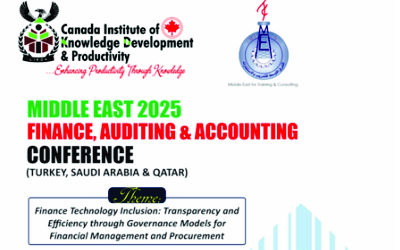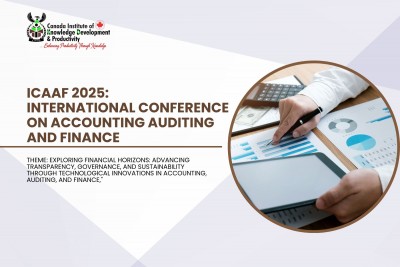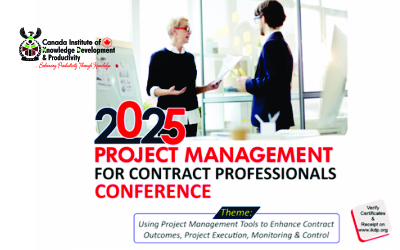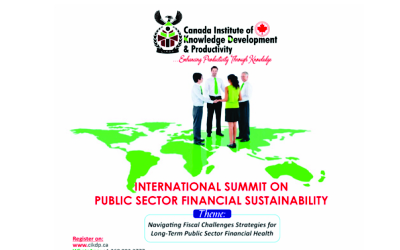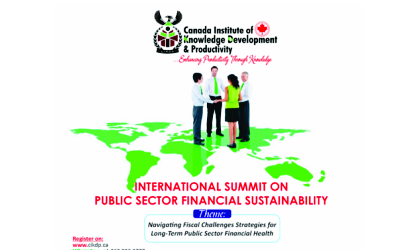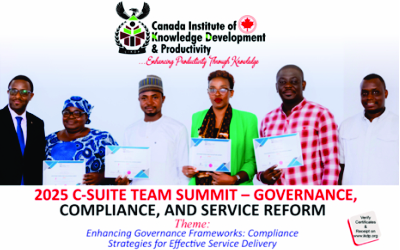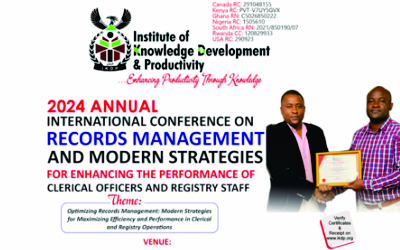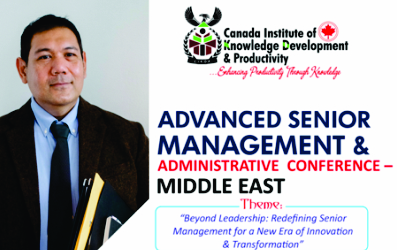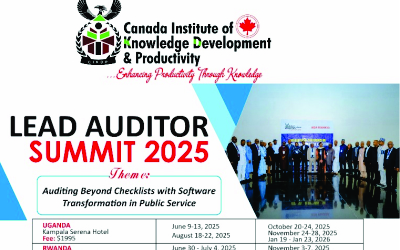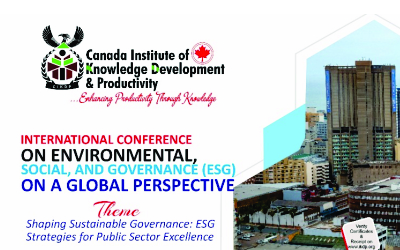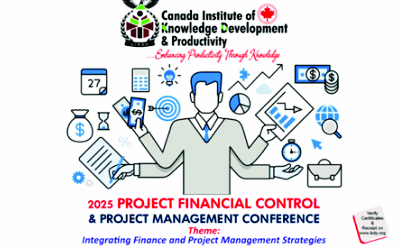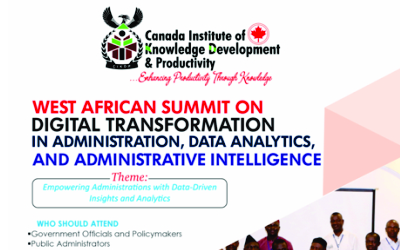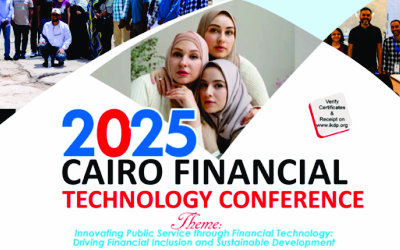Course description
INTROUCTION
Middle East 2025 Finance Auditing & Accounting Conference (Turkey & Egypt), an unparalleled event designed to bring together finance professionals, accountants, auditors, and industry leaders from across Turkey, Egypt and beyond. This year’s conference focuses on " Finance Technology Inclusion: Transparency and Efficiency through Governance Models for Financial Management and Procurement
In today's dynamic financial environment, the need for robust governance models has never been more critical. With increasing regulatory demands and the rapid advancement of financial technology, professionals must stay ahead of the curve to maintain transparency and efficiency in their operations. This conference aims to equip participants with the knowledge and tools necessary to navigate these challenges effectively.
Participants will benefit from a comprehensive agenda that covers a range of topics, including governance models, transparency in financial operations, efficient procurement practices, risk management, compliance, and the latest innovations in financial technology. Through a blend of keynote speeches, panel discussions, interactive workshops, and networking sessions, attendees will have ample opportunities to engage with experts, share insights, and develop actionable strategies to implement within their organizations.
by the end of the conference, participants will be able to:
- understand and apply governance models: identify various governance models applicable to financial management and procurement, and understand their strengths and weaknesses;
- implement best practices: utilize best practices for achieving transparency and efficiency in financial management and procurement processes;
- leverage technology: incorporate technological solutions to enhance governance and operational efficiency;
- evaluate and manage risks: develop strategies to effectively manage and mitigate risks associated with financial governance and procurement;
- integrate governance models: integrate financial management and procurement governance models for a cohesive approach to organizational management;
- innovate and adapt: recognize and apply innovative approaches to governance, ensuring adaptability in a changing financial landscape; and
§ measure effectiveness: implement methods to assess and measure the success of governance models in achieving desired outcomes
WHO SHOULD ATTEND
§ CFOs and Finance Directors from private and public sector
§ Auditors and Accountants
§ Government Regulators
§ Procurement Managers
§ FinTech Innovators
§ Consultants and Advisory Services
§ Academic and Research Institutions
§ Government Officials from Ministry, Military, Parastatals and NGOs
|

CONFERENCE CONTENTS
Module 1: Introduction to Financial Management and Procurement
1.1 Understanding Financial Management
· Definition and Scope
· Overview of financial management principles.
· Importance of effective financial management in organizations.
· Key Concepts
· Budgeting, forecasting, and financial planning.
· Risk management and internal controls.
· Financial reporting and compliance.
1.2 Procurement Processes and Principles
· Procurement Fundamentals
· Definition and objectives of procurement.
· Key stages of the procurement cycle.
· Best Practices
· Supplier relationship management.
· Ethical procurement and compliance.
· Cost reduction strategies.
1.3 Governance Models for Financial Management
· Overview of Governance Models
· Traditional vs. modern governance models.
· Role of governance in financial transparency and efficiency.
· Case Studies
· Successful implementation of governance models in various organizations.
Module 2: Advanced Financial Management Practices
2.1 Financial Planning and Analysis
· Strategic Financial Planning
· Long-term financial planning and goal setting.
· Techniques for effective financial forecasting.
· Financial Analysis Tools
· Ratio analysis, trend analysis, and benchmarking.
· Using financial data for decision making.
2.2 Budgeting and Resource Allocation
· Budgeting Techniques
· Zero-based budgeting, activity-based budgeting, and flexible budgeting.
· Resource Allocation Strategies
· Optimizing resource allocation for maximum efficiency.
· Case studies on successful budgeting and resource allocation.
2.3 Risk Management in Financial Operations
· Identifying Financial Risks
· Types of financial risks and their impact.
· Risk Mitigation Strategies
· Techniques for risk assessment and management.
· Implementing internal controls and compliance measures.
Module 3: Innovations in Procurement
3.1 Digital Transformation in Procurement
· Role of Technology
· Impact of digital tools on procurement processes.
· Benefits of e-procurement systems.
· Case Studies
· Successful digital transformation initiatives in procurement.
3.2 Sustainable Procurement Practices
· Sustainability in Procurement
· Principles of sustainable procurement.
· Strategies for implementing sustainable practices.
· Case Studies
· Examples of organizations with successful sustainable procurement practices.
3.3 Enhancing Efficiency in Procurement
· Process Improvement Techniques
· Lean procurement and continuous improvement.
· Supplier Management
· Techniques for effective supplier selection and evaluation.
· Strategies for building strong supplier relationships.
Module 4: Governance and Compliance
4.1 Regulatory Frameworks and Standards
· Understanding Regulations
· Overview of key financial regulations and standards.
· Compliance Strategies
· Techniques for ensuring compliance with regulations.
· Best practices for implementing compliance programs.
4.2 Transparency in Financial Reporting
· Importance of Transparency
· Role of transparency in building trust and credibility.
· Techniques for Enhancing Transparency
· Implementing robust financial reporting frameworks.
· Use of technology to enhance transparency in financial reporting.
4.3 Ethical Practices in Financial Management
· Ethical Principles
· Overview of ethical principles in financial management.
· Implementing Ethical Practices
· Techniques for fostering an ethical culture.
· Case studies on ethical dilemmas and solutions in financial management.
Module 5: Strategic Planning and Implementation
5.1 Developing Strategic Financial Plans
· Strategic Planning Techniques
· Frameworks for developing strategic financial plans.
· Case Studies
· Examples of successful strategic financial planning.
5.2 Implementation Challenges and Solutions
· Common Challenges
· Identifying and addressing barriers to implementation.
· Solutions and Best Practices
· Techniques for overcoming implementation challenges.
· Case studies on successful implementation of financial strategies.
5.3 Measuring Success and Assessing Impact
· Performance Metrics
· Key performance indicators for financial management and procurement.
· Impact Assessment
· Techniques for assessing the impact of financial strategies and initiatives.
· Case studies on impact assessment in financial management.
Module 6: Networking and Collaboration 6.1
· Networking with Industry Leaders
· Structured Networking Sessions
· Opportunities to network with industry leaders and practitioners.
· Collaboration Opportunities
· Identifying potential partners for future projects.
6.2 Knowledge Exchange and Experience Sharing
· Facilitated Discussions
· Facilitated sessions for sharing best practices and lessons learned.
· Case Studies
· Real-world examples and success stories from industry leaders.
6.3 Forming Strategic Partnerships
· Identifying Potential Partners
· Techniques for identifying and approaching potential partners.
· Developing Collaborative Initiatives
· Strategies for developing successful collaborative initiatives and joint ventures.
Conference Schedule
| Time |
| Details | |||||||||
|
|
|
| |||||||||
|
|
| ||||||||||
|
|
| ||||||||||
|
|
| ||||||||||
|
|
| ||||||||||
|
|
|
| |||||||||
|
|
| ||||||||||
|
|
|
|
|
|
| |||||||||
|
|
|
| |||||||||
|
|
| ||||||||||
|
|
| ||||||||||
|
|
| ||||||||||
|
|
| ||||||||||
|
|
| ||||||||||
|
|
|
|
|
|
| |||||||||
|
|
|
| |||||||||
|
|
| ||||||||||
|
|
| ||||||||||
|
|
| ||||||||||
|
|
| ||||||||||
|
|
| ||||||||||
|
|
|
What will i learn?
- Understand and apply governance models
- Implement best practices
- Leverage technology
- Evaluate and manage risks
- Integrate governance models
Requirements
- June 30 - July 4, 2025. August 18-22, 2025 September 1-5, 2025 November 17-21, 2025 December 15-19, 2025 January 12-16, 2026
Frequently asked question

